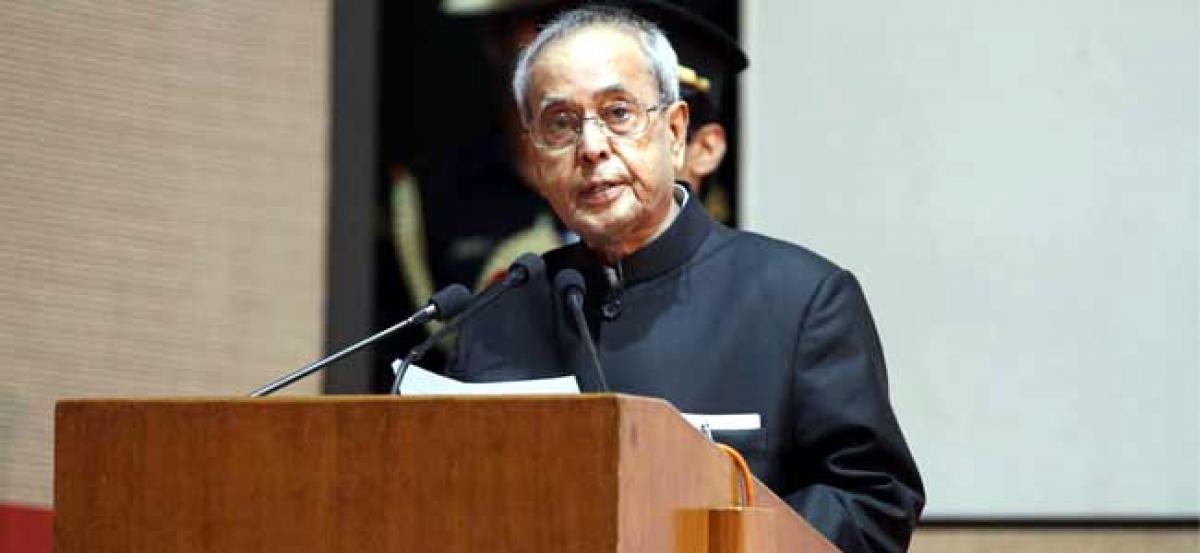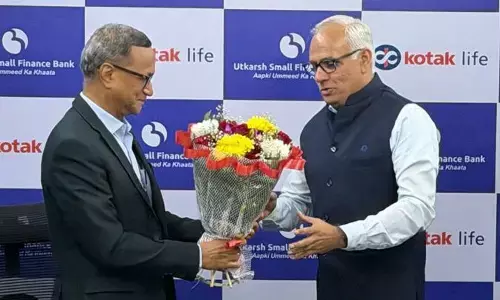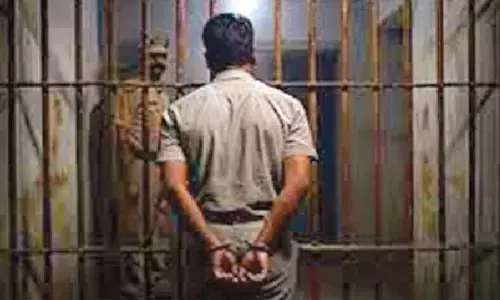Pranab Mukherjee laments brain drain of professionals

Mukherjee also asked researchers of sociology and politics in South Asian universities to explore reasons behind a common fact that saw assassinations of top
Mukherjee also asked researchers of sociology and politics in South Asian universities to explore reasons behind a common fact that saw assassinations of top independence leaders of India, Bangladesh, Pakistan, Burma and Sri Lanka soon after their independence exposing them to a leadership vacuum and instability
Dhaka: Prestigious institutions like the IITs were producing brilliant professionals who virtually ended up becoming "salesmen" of multinational companies instead of contributing to nation building, former president Pranab Mukherjee lamented.
Stressing on quality research, Mukherjee sought revision of the goals of higher seats of learning in South Asia, as he was conferred an honorary doctor of letters (D Litt) degree by Chittagong University, one of the leading varsities of Bangladesh.
"Few Indians like Amartya Sen, C V Raman and Har Gobind Khorana received the Nobel Prize for their outstanding academic research but they pursued their studies in foreign universities like Harvard, not in Indian ones," he said in his convocation address on the third day of his four-day private visit to Bangladesh.
He said prestigious higher seats of learning like the IITs were producing brilliant professionals who virtually "emerge as the salesmen of multinational companies" doing injustice to their merit and brilliance while people with lesser merit could perform their jobs. Mukherjee said being a finance minster he had allocated funds for education but had little scope to review the performance of particularly the higher seats of learning, which he managed to do after becoming president as it required him to be the chancellor to over 100 universities.
He also urged the universities to develop themselves as centres of intellectual practices discarding all narrow outlooks as "there should be no wall to divide the intellect and creative thoughts".
"In the history of thousands of years, universities like Nalanda and Taxila acted like magnets to attract intellectuals from all over the world," he said.
Chittagong University Vice Chancellor Iftekhar Uddin Chowdhury conferred the degree on Mukherjee at the university campus. Pro-Vice Chancellor Shirin Akhtar also attended the convocation conducted by acting registrar Kamrul Huda.
Mukherjee also asked researchers of sociology and politics in South Asian universities to explore reasons behind a common fact that saw assassinations of top independence leaders of India, Bangladesh, Pakistan, Burma and Sri Lanka soon after their independence exposing them to a leadership vacuum and instability.
"In Bangladesh, Father of the Nation Bangabandhu Sheikh Mujibur Rahman was brutally killed only three-and-a-half years after independence, while India saw Mahatma Gandhi's assassination, Pakistan saw the killings of Liaqat Ali Khan and Bhutto, Burma saw Aung San's murder and Sri Lanka witnessed the murder of Ranasinghe Premadasa," he said.
Mukherjee said all these assassinations affected the democratic advancement of the countries in the region, which once was under single British rule. "People need to know what political or socioeconomic reasons caused these assassinations, which subsequently saw prolonged military rule disrupting the democratic process," he said.
Mukherjee, however, said like India, Bangladesh proved that democracy could advance the nation in terms of economic growth and social development. "A recent World Bank report identified Bangladesh as a country of continued advancement.
It's GDP growth rate reached the spectrum of 7 per cent while the global recession slowed down the growth rate of most developed nations. In social development indicators, Bangladesh is progressing fast as well," he said.
Chittagong University (CU) in the southeastern port city had said it had decided to confer a Doctor of Letters (D Litt) degree upon Mukherjee for his "outstanding contributions to society and for being a genuine friend of Bangladesh".
The Chittagong City Corporation will also present Mukherjee with a 'Key to the City' this evening. The city's Mayor A J M Nasir Uddin will hand over the key to the former president.
Bangladesh's premier Dhaka University earlier in 2013 had also conferred an honorary doctorate of law on Mukherjee. Mukherjee, 82, served as the 13th president of India from 2012 until 2017.
He arrived here on Saturday. Yesterday, he attended a Bengali literature conference and paid a courtesy call on Prime Minister Sheikh Hasina, who hosted a lunch at her official residence in his honour.
Anisur Rahman








